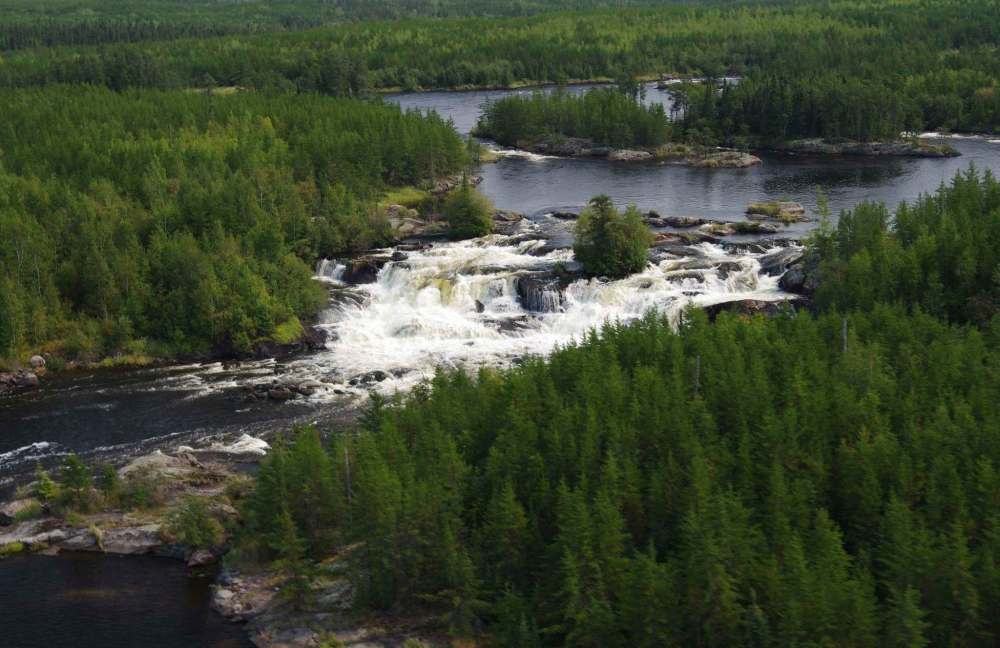Manitoba/Ontario forest designated World Heritage Site
Advertisement
Read this article for free:
or
Already have an account? Log in here »
To continue reading, please subscribe:
Monthly Digital Subscription
$1 per week for 24 weeks*
- Enjoy unlimited reading on winnipegfreepress.com
- Read the E-Edition, our digital replica newspaper
- Access News Break, our award-winning app
- Play interactive puzzles
*Billed as $4.00 plus GST every four weeks. After 24 weeks, price increases to the regular rate of $19.95 plus GST every four weeks. Offer available to new and qualified returning subscribers only. Cancel any time.
Monthly Digital Subscription
$4.99/week*
- Enjoy unlimited reading on winnipegfreepress.com
- Read the E-Edition, our digital replica newspaper
- Access News Break, our award-winning app
- Play interactive puzzles
*Billed as $19.95 plus GST every four weeks. Cancel any time.
To continue reading, please subscribe:
Add Free Press access to your Brandon Sun subscription for only an additional
$1 for the first 4 weeks*
*Your next subscription payment will increase by $1.00 and you will be charged $16.99 plus GST for four weeks. After four weeks, your payment will increase to $23.99 plus GST every four weeks.
Read unlimited articles for free today:
or
Already have an account? Log in here »
Hey there, time traveller!
This article was published 01/07/2018 (2771 days ago), so information in it may no longer be current.
OTTAWA — A United Nations committee has declared a swath of forest in Manitoba and Ontario a World Heritage Site, ending a $15-million, 14-year effort to grant the designation to Pimachiowin Aki.
“It was such a wonderful feeling to hear the words today,” Poplar River resident Sophia Rabliauskas wrote Sunday from Bahrain, at a meeting of the UN Educational, Scientific and Cultural Organization (UNESCO). “We can now devote all our efforts to preserving Pimachiowin Aki as a treasure for our peoples and the world.”
Sunday’s decision ends a bid that started in 2004 by First Nations people living in the boreal forest in eastern Manitoba and northwestern Ontario. The site holds both cultural and natural significance to them, but submitting a bid based on those two elements made it a complicated proposal.

The four First Nations behind the bid hope UNESCO status will attract tourism, economic activity and research into climate change. The four led the effort, with funding from Manitoba and Ontario.
Manitoba Sustainable Development Minister Rochelle Squires was “ecstatic” Sunday, calling the Canada Day result a good omen for Indigenous empowerment and for conservation.
“To know that this pristine area of the boreal shield will be protected and preserved for future generations, to also study climate change and also make it a climate change-resistant part of world is such an incredible future that Manitobans can be really proud of,” she said.
”It’s incredibly fitting that we received the inscription on Canada Day.”
Federal Environment Minister Catherine McKenna said she was “delighted” in a Sunday statement.
”These national treasures represent the very best that Canada has to offer, including the history, cultures, and contributions of Indigenous peoples,” she wrote.
“On this Canada Day, I am very proud to be able to showcase Pimachiowin Aki to the world.”
This is the first time UNESCO has designated World Heritage status based on two factors, meaning it needed approval from both the heritage and culture committees. This is the third attempt by Pimachiowin Aki to get World Heritage Site status. Two previous attempts were thwarted by confusion about the hybrid bid in 2013, and by the 2016 pullout of an Ontario reserve.
This spring, Rabliauskas told the Free Press that it would have been unthinkable to proceed with the bid without including both the culture and nature factors.
“Without this land, we would not be able to survive as a people,” said Rabliauskas, who has been involved with the bid since its inception.
“We consider these areas very sacred spaces, where we practise our ways of life,” she said.

In 2014, a report by Marr Consulting pegged the number of anticipated tourists at less than 1,000 a year, and question how much revenue would be generated as a result of the designation. Bid officials say they will work hard to promote the area.
Pimachiowin Aki is an Ojibwa phrase that means “the land that gives life.” The tract of land includes the Poplar River, Bloodvein, Pauingassi and Little Grand Rapids First Nations in Manitoba, and Crown land in both provinces.
The last two of those First Nations were hit by wildfires this May, forcing 1,400 residents to evacuate to Winnipeg for weeks.
It’s unclear whether UNESCO designation would affect future wildfires in the area. Bid officials said they’d study the issue, but they weren’t sure whether it would mean faster emergency response to fires in the area, or limits on fire-suppression tactics that endanger local species.
Parks Canada said in a statement that the UNESCO designation for Wood Buffalo National Park didn’t affect the emergency response to the 2016 Fort McMurray fire in Alberta.
The site is 29,040 square kilometres of boreal forest and traditional Ojibwa (Anishinaabe) territory, roughly the size of Belgium. It was 13 per cent larger before Pikangikum First Nation in Ontario pulled out of the bid in 2016.
The former NDP government cited the Pimachiowin Aki project for its decision to reroute the Bipole III transmission line to west of Lake Manitoba instead of east of Lake Winnipeg. That change cost roughly $1 billion.
dylan.robertson@freepress.mb.ca


